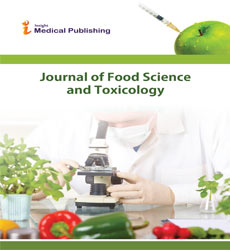The Effect of next generation probiotics (NGPs) on Clostridium difficile Sporulation
Abstract
Clostridium difficile infection (CDI) is the leading cause of hospital acquired, antibiotic associated diarrhea in the United States. According to a Centers for Disease Control and Prevention (CDC) study in 2015, nearly half a million-people suffered from CDI in a single year, the cost of treatment of CDI rose to nearly 4.8 billion dollars. Due to the potentially high consequences of antibiotic resistance, Clostridium difficile (C. diff) has been characterized by the CDC as an urgent infectious disease threat. The mode of transmission of CDI is the ingestion of metabolically inactive spores which then colonize the gastrointestinal tract following a depletion of the normal gut flora. This depletion of normal gut bacteria commonly occurs following the administering of broad spectrum antibiotics. Furthermore, due to the persistence of these spores, one in five individuals treated for CDI experiences recurrent infection. To combat this, a large amount of research has been directed towards “next generation” probiotics (NGPs) capable of producing chemical compounds that are bactericidal but non-inhibitory to normal gut bacteria. Next generation probiotics include bacterial species Lactobacillus reuteri and yeast species Debaryomyces hanseii . Here, we present preliminary data using a potential NGP, Debaryomyces hansenii, showing its effect on the sporulation frequency of C. difficile.
Open Access Journals
- Aquaculture & Veterinary Science
- Chemistry & Chemical Sciences
- Clinical Sciences
- Engineering
- General Science
- Genetics & Molecular Biology
- Health Care & Nursing
- Immunology & Microbiology
- Materials Science
- Mathematics & Physics
- Medical Sciences
- Neurology & Psychiatry
- Oncology & Cancer Science
- Pharmaceutical Sciences
